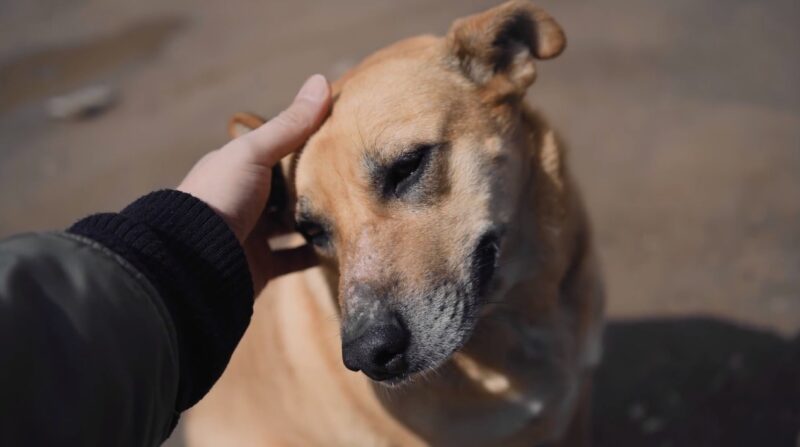According to hundreds of dog greetings videos, it certainly seems like dogs can understand when their human owners return home from a long absence.
Recently, countless dog videos have gone viral of soldiers returning home and their pets reacting by crying, fainting, and even seeming to laugh. But do dogs really understand what it means to miss someone?
Do dogs truly feel the excitement and overwhelming joy of experiencing an owner’s return after months or years of them being gone as we believe they do?
Science has proven that similar to humans, dogs remember things the clearest when there are strong emotional ties to the memories. The average dog has approximately the same emotional competency of a three year old child.
They can feel basic emotions like happiness, love, and anger. Dogs can even be surprised or scared.
However, they do not have the ability to feel the more complex social emotions that humans can, like guilt, shame, or a sense of pride.
It is then quite plausible that dogs really do understand what it is like to genuinely miss someone when they are gone; they just probably don’t understand the full extent of the absence.
“The emotional life of a dog—the entire mental life of the dog—is very close to a human two- or three-year-old. A two- or three-year-old will have love and joy and fear and anger and surprise, but they tend not to have the higher social emotions like guilt … pride, shame, that sort of thing,” [source]
Studies Show Dogs Recognize by the Smell

A new study, which was published in Pacific Standard earlier this year, demonstrated that when a dog smells a familiar human, there is a specific area of their brain that is being triggered.
Dogs use the smells, sights, sounds, and other sensations that are provided by humans to distinguish one person from another. When the sensations of a certain person are activated, a dog will behave in the way they usually do around that human. It may be shown as a special greeting, sniffing the person’s pockets if they usually bring treats, or barking a welcome.
Typically, when a dog’s owner leaves, they go through a grieving period and, much like people, it can last anywhere from a few days to a few months.
Because we cannot communicate with our pets and let them know when we will be back, a lengthy separation becomes an unpredictable loss to them, and a true anxiety problem.
Dog’s Comprehension of Time Frames
Studies have not been performed to see just how long it takes for dogs to realize that their owner is absent, but it is evident that they will ultimately see it as a loss if they don’t return within a certain period of time.
What we do know is this: dogs are creatures of habit. When you leave every day for work at 8 a.m. and you return around 6 p.m. every night, your dog will certainly be happy upon your return, but they are also expecting it. If the absence is extended, the dog may sense that it is an unusual circumstance and react more strongly when you return.
Another factor that may affect their level of excitement is the other humans that are present when you come home.
When you return from work, your family is happy to see you, but it is nothing out of the ordinary for them. When you return from an extended absence, your family will react much stronger, thus the dog may sense that and react more strongly too. At this point though, this is just a speculation.
Evidence shows that they will remember you for a very long time. The bond between the owner and the dog leaves a lasting impression in their memory. It is quite possible that they are thinking about you while you are gone just as much as you think about them.
“There’s no doubt that dogs have very specific memories. They recognize individuals. There’s a lot wrapped up in that relationship of care, love, and affection. If a dog’s caretaker leaves for a long period of time, it will likely go through a grieving period. It’s a loss—an unpredictable loss—because the person can’t say, ‘I will be back in two weeks.” – Marc Bekoff, co-founder of Ethologists for the Ethical Treatment of Animals
Frequently Asked Questions
Beyond basic emotions, can dogs experience complex feelings like guilt or pride?
No, dogs are believed to have the emotional complexity of a two to three-year-old child, experiencing basic emotions like happiness, love, and fear, but not more complex social emotions like guilt, pride, or shame.
How do dogs differentiate between humans?
Dogs use a combination of senses including smell, sight, and sound to distinguish one person from another. They associate certain sensations with specific humans, leading to unique reactions when they encounter familiar individuals.
Do dogs go through a grieving period when their owner leaves?
Yes, much like humans, dogs can go through a grieving period when their owner leaves. This can last anywhere from a few days to a few months.

Can the presence of other humans affect a dog’s reaction to their owner’s return?
Possibly. The reactions of other humans present during the owner’s return might influence the dog’s response. However, this is still a topic of speculation.
Do dogs remember their owners even after a long absence?
Yes, evidence suggests that dogs remember their owners for a very long time. The bond between a dog and its owner leaves a lasting impression in their memory.
Do dogs think about their owners when they are gone?
While we can’t be certain, it’s quite possible that dogs think about their owners when they are gone, just as owners think about their dogs.
Can dogs feel anxiety due to their owner’s absence?
Yes, lengthy separations can be seen as an unpredictable loss to dogs, leading to anxiety.
Can dogs remember people other than their owners?
Yes, dogs have very specific memories and can recognize individuals they have formed bonds with, not just their primary caretakers.
Conclusion
In the end, the bond between a dog and its owner is a special one, filled with love, care, and mutual understanding. While our furry friends may not fully grasp the concept of time or absence in the way humans do, they certainly feel our absence and rejoice in our return.
So, the next time you return home to a wagging tail and a joyful bark, know that your dog has been waiting for this moment, cherishing the bond you share.
In conclusion, there is no need to worry that your dog will forget you while you are gone for an extended time period.







